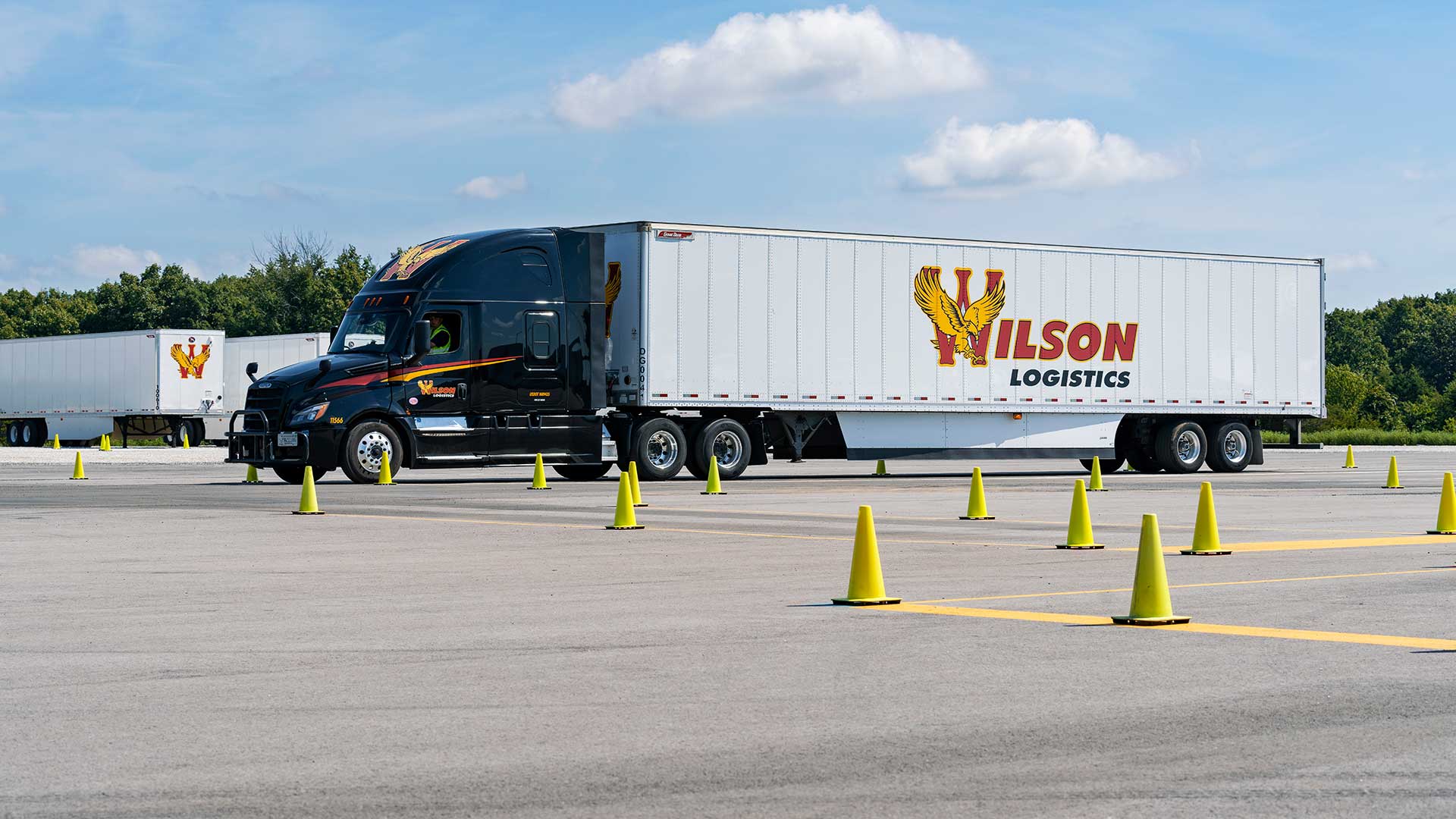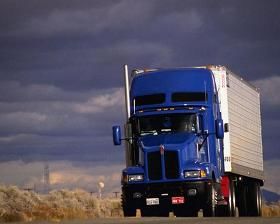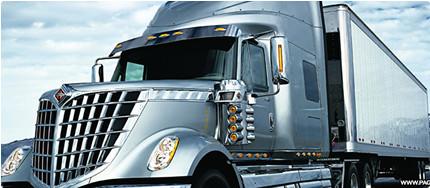New! High Road 2.0! We have a new version of this program. You can find it here: High Road 2.0
Use All Logbook Rules To Your Advantage
Say you are given a load which picks up at noon on Thursday and delivers at 6am on Friday. The trip will take you 10-hours, so you will arrive at your destination at 10pm. However, you realize the nearest truck stop is an hour away from the customer and they don't allow overnight parking. Can you still make this load on time? Yes, you can!
Normally, you would take a 10-hour break to reset your 14 and 11-hour clocks. But in this case, you can only work in an 8-hour break until you have to drive to your delivery. If you take an 8 hour break, you will regain just enough time to arrive at your destination. And once at your destination, you can switch back to off-duty (provided you are not the one unloading the freight) for 2 hours and complete your 10-hour break by using the split sleeper berth provision.
Many drivers would have claimed the load assignment couldn't be completed legally as most truckers never use the 8/2 split sleeper berth provision. Instead, they only take 10-hour breaks to reset their on-duty and driving times. This is a load assignment they would have lost out on and one you would have made money on. Understand all the rules and use them to your advantage!
Combine Tasks

While using EOBRs , every minute you can save is another minute you can make money. Combining tasks is an excellent way to save on time. In fact, there's one trick which could save you 15 minutes or more every day? Wouldn't that be beneficial? Heck, 15 minutes saved over the course of 7 days is an extra 1hr and 45 minutes. That's right, by using this one little trick, you can save nearly 2 hours each week and possibly more depending on how creative you get.
The trick? Perform your fueling and pre-trip inspection at the same time. The DOT regulations do not specify when a pre-trip must be done. The regulations simply state that you must perform an inspection daily. Well, if you're going to be fueling anyway, why not lump the two together under one 15 minute log entry? You've met your inspection requirement for the day and have saved yourself a bit of time. Get creative! You should always stay safe and legal 100% of the time. But that doesn't mean you can't get a little creative to save time.
Finally, remember that each time you stop you will waste about 10 minutes off of your available hours. It takes time to take an exit ramp, sit at a traffic light, drive to the truck stop, then do it all in reverse when going back onto the expressway. Every time you stop you are using up valuable time. So try to use the restroom during a fuel stop. Or pick up a sub sandwich so you don't need to stop for lunch later. Always try to find ways to make each stop as productive as possible. For every one time you stop, try to complete a minimum of two tasks (the more the better).
Don't Waste A Minute
Many drivers using EOBRs make a minor, yet costly mistake. They don't switch their log from the driving line to the off duty line immediately. Most EOBRs are designed to switch off the drive line once the parking brake is engaged. But there are some scenarios in which a driver will stop driving, but will keep the truck in place by using the brake pedal instead of using the parking brake. This keeps the logbook on the drive line and eats away at your 11-hour drive time.
Example: A driver pulls off the expressway and heads to a truck stop to get fuel. Upon pulling into the truck stop, the driver notices the fuel islands are all in use. The driver gets in line to wait for an open fuel pump but instead of setting the parking brake to wait, the driver simply keeps his foot on the brake pedal. If he hasn't switched his logbook from driving to off-duty, he is literally throwing time away! There are many other examples which can be used here. The main point is, always switch your logs ASAP when you are not driving. Over the course of a single week, you'd be surprised with how much time can be saved. A little attention to a lot of seemingly minor details will add up to a whole lot. Don't waste a single minute if you don't have to!
Choose your 34hr restarts wisely
As with most things in trucking, you should always have a plan. As an OTR truck driver, you will sometimes run out of hours to work, not because of your 14 or 11-hour clocks expiring, but because of your 70 hour / 8 day duty limit. You should always look far enough in advance to know if or when you will need to take a 34 hour restart. Should you find you'll need one, try to plan for it. Sitting around for 34 hours is a gigantic waste of time. So what can you do instead of just sitting? Among other things:
- Plan to shut down at a company terminal or repair shop to have mechanical issues fixed (there is almost always something that needs to be worked on).
- Get laundry done.
- Do any shopping you need to do such as restocking on food and drinks (truck stops tend to be pricey).
- Purposely shut down in an area you'd like to explore. Have your fun time during restarts, not during times when you have hours available to run and make money.
- Take care of personal needs such as getting a haircut, filling a prescription, or taking care of other miscellaneous personal needs.
The list can go on, but the point is the same. Taking care of issues during 34 hour restarts will save you time later. Never let a 34 hour restart go to waste. Try your hardest to make it productive in some way. Remember, if you want to maximize your paycheck, not a minute should go to waste. A saved minute here and there during your 34 hour restart will help you out later on. I mean, really. Who wants to turn down a load assignment because they need to do laundry? That can be done during your restart!
Arrive early

It's good practice to always arrive at your destination as quickly as possible. Many things can go wrong along the way. It would be a shame to take your time, only to have something slow you down later on. Always get as close to your customer as possible right away. If you have time to waste, you should waste it near the customer. Far too many drivers lose out on miles because they had a problem en-route and wasted too much time along the way. Not to mention, many customers will give you an earlier appointment time if you show up early, even if they said they wouldn't over the phone.
It's also possible for you to sneak in 34 hour restarts by arriving early. Sometimes, you'll have just enough time to work in a restart while under a load. Even if you don't necessarily need a restart now, get one in anyway. At least you'll know for certain that for the next 8 days, you can run as hard as you want without the 70-hour duty clock getting in the way.
Buy A Fridge And Microwave
Most trucks can be equipped with a small fridge and microwave. Many drivers don't like spending the money on these things for their truck, but having these items on your truck will easily pay for themselves. Small refrigerators can usually be found at places like Walmart for well under $100. Microwaves are even cheaper than that. By having a fridge and microwave on the truck with you, you'll never become reliant on truck stops for food and beverages. This gives you the freedom to park just about anywhere which means you can take your breaks just about anywhere. In the end, having a fridge and microwave on-board will save you time and give you more freedom. Not to mention, stocking up on food purchased at a supermarket is a heck of a lot cheaper than buying meals at a truck stop everyday!
Bonus Tip: Stay Away From Caffeine!
Alright, well, you don't have to completely stay away from caffeine. Everyone needs a pick-me-up now and then. But remember, every time you stop, you are using up about 10 minutes from your log. By taking in a lot of caffeine, you'll certainly have to stop more frequently. You should try to limit your caffeine intake and as long as you're being safe and healthy, limit the amount of any fluids you're drinking. This may seem like a ridiculous tip, but drivers who "think outside the box" are generally rewarded with higher earnings. Remember, every minute counts!










 TT On Facebook
TT On Facebook